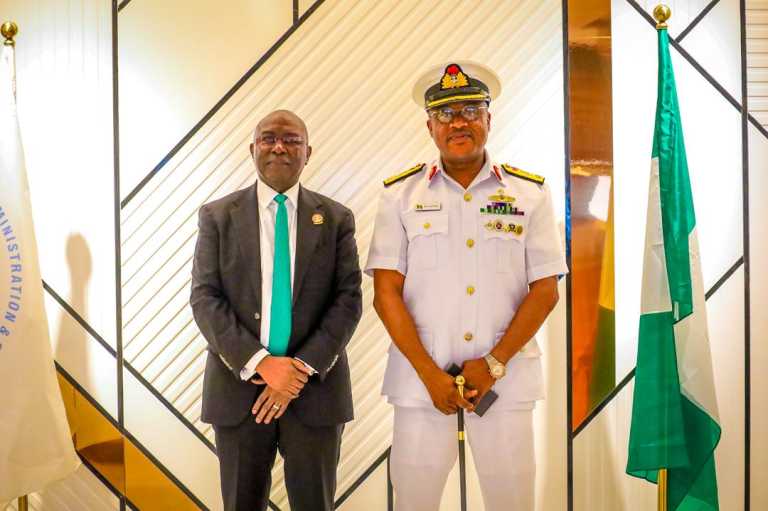LIFE’s Safe Abortion Awareness Campaign in Lagos Sparks Urgent Call for Compassionate Reform and Community Engagement
By prince Benson Davies
In a landmark effort to reframe abortion as a public health issue rather than a moral battleground, the Leadership Initiative for Youth Empowerment (LIFE) convened a multi-sectoral workshop in Lagos, Nigeria, on October 16, 2025.
The event brought together medical experts, communication specialists, religious leaders, youth advocates, and community stakeholders to address the persistent stigma, misinformation, and legal ambiguity surrounding abortion in Nigeria.Held under the theme “Transforming Narratives, Empowering Care,” the seminar served as a clarion call for evidence-based dialogue, compassionate care, and strategic collaboration to reduce maternal mortality and promote reproductive justice.

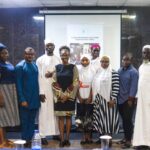
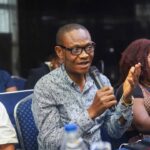
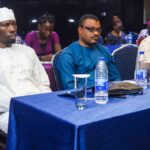
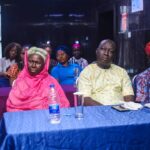
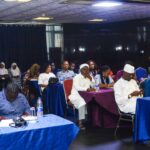
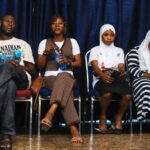
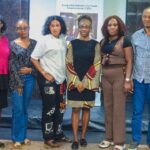 Understanding the Legal Landscape: Abortion in Nigeria One of the most pressing issues addressed during the workshop was the widespread misunderstanding of Nigeria’s abortion laws. Contrary to popular belief, abortion is not entirely illegal in Nigeria. It is legally permitted under specific circumstances, primarily when the life of the woman is at risk. However, the lack of public awareness and clarity around these legal provisions has contributed to fear, silence, and unsafe practices.
Understanding the Legal Landscape: Abortion in Nigeria One of the most pressing issues addressed during the workshop was the widespread misunderstanding of Nigeria’s abortion laws. Contrary to popular belief, abortion is not entirely illegal in Nigeria. It is legally permitted under specific circumstances, primarily when the life of the woman is at risk. However, the lack of public awareness and clarity around these legal provisions has contributed to fear, silence, and unsafe practices.
Dr Ngozi Nwosu, Executive Director of Vision Spring Initiative, emphasised that legal restrictions do not equate to total prohibition. She urged participants to recognise that Nigeria’s abortion laws are rooted in colonial-era frameworks that have long been reformed in countries like the United Kingdom, yet remain unchanged in Nigeria.“We must stop living in denial,” Dr. Ngozi said. “Unsafe abortion is a public health emergency, and the records are alarming. Women are dying because they don’t know their rights or where to seek safe care.”The Human Cost of Unsafe AbortionNigeria continues to record one of the highest maternal mortality rates globally, with unsafe abortion contributing to an estimated 30–40% of these deaths.
In Lagos alone, unsafe abortion accounts for approximately 13% of maternal deaths.
These figures underscore the urgent need for reform and public education.Dr Modupe Adedeji, consultant gynaecologist and Lagos sector secretary of the Society of Obstetricians and Gynaecologists of Nigeria (SOGON), shared harrowing accounts of women who suffered severe complications due to unsafe procedures, ranging from organ damage and infertility to death.“We’ve treated women who inserted sticks or hangers to terminate pregnancies. Others come to us after quack doctors perforate their wombs.
These are not distant statistics, they are real people,” she said.Dr Modupe advocated for a compassionate, life-saving approach to abortion care, emphasising that medical professionals must be protected, not punished, for providing essential services.Debunking Myths and Misconceptions
The workshop also tackled pervasive myths that continue to shape public perception.
One of the most damaging misconceptions is that abortion is sought only by irresponsible individuals.
In reality, many women who seek abortions are married, mothers, or survivors of abuse.Communication specialist Damilola Danbaba of the Centre for Bridging Health Gaps (CBHGaps) stressed the importance of nuanced, empathetic messaging to counter misinformation.“Abortion is not illegal, it’s restricted.
And it’s not a moral failure, it’s a health issue,” he said. “We must use social media and storytelling to educate, not shame.”Danbaba highlighted the role of platforms like TikTok and Instagram in shaping public discourse, urging advocates to leverage these spaces for compassionate education.
Prevention and Education:
A Holistic ApproachDr Sholakunmi Olusanya of Action Health Incorporated (AHI) emphasised that preventing unwanted pregnancies is a critical component of reducing unsafe abortions.
She pointed to international examples where early sexual and reproductive health (SRH) education has led to lower rates of teenage pregnancy and improved health outcomes.“If we don’t give our young people accurate information, how do we expect them to make safe choices?”
she asked.
Participants agreed that SRH education must be age-appropriate, culturally sensitive, and community-driven.
This includes engaging parents, teachers, and faith leaders in open, judgment-free conversations.Faith and Culture: Reframing the NarrativeReligious and cultural beliefs often play a significant role in shaping attitudes toward abortion. However, the workshop emphasised that faith should be a source of compassion, not condemnation.
Engaging clerics and traditional leaders in sensitisation efforts was seen as vital to dismantling stigma and promoting safe care.Dr. Ngozi noted that many women face compounded challenges, poverty, abuse, rape, and lack of access to care.
These realities demand safe spaces where vulnerable groups can seek help without fear.“We must protect, not punish, health providers who act in good faith,” she said. “And we must ensure that every woman knows her rights and options.”Strategic Messaging and Community EngagementThroughout the workshop, participants crafted strategic messages tailored to different audiences:“Unsafe abortion affects our daughters, our wives, our neighbours.
It is not a distant issue; it is a community emergency.”“Faith is not a barrier to compassion; it is the foundation of it. Helping a woman in crisis is not a sin, it is a moral duty.”These messages reflect a broader truth: evidence, not stigma, should shape policy and lawmaking. Legal and policy reforms that expand access to safe abortion services are consistent with Nigeria’s obligations under the Maputo Protocol and other human rights frameworks.
A Call to Action: Building Synergy for ChangeThe workshop concluded with a unified call for synergy and collaboration among stakeholders, healthcare providers, civil society organisations, religious leaders, media professionals, and policymakers. Key recommendations included:Accurate information: Disseminating clear, evidence-based facts about abortion laws and safe practices.
Community engagement: Partnering with religious and traditional leaders to promote awareness.Safe spaces: Creating environments where women and girls can access care without fear or judgment.Prevention: Expanding access to contraception and SRH education to reduce unwanted pregnancies.
Participants also called on the Lagos State Government to reinstate the suspended Guidelines on Safe Termination of Pregnancy for Legal Indications (STOP), describing it as a life-saving tool to reduce preventable maternal deaths.Amplifying the Message: Watch and ShareTo further the campaign, LIFE recommends sharing this powerful video featuring three Nigerian doctors who speak candidly about abortion from a public health perspective.
Their insights highlight the consequences of limited access to safe services and the strain unsafe abortions place on the healthcare system. Watch hereToward a Future of Dignity and HealthAs Nigeria grapples with rising maternal deaths and persistent stigma, initiatives like LIFE’s awareness campaign offer a blueprint for change. By centring compassion, evidence, and community engagement, we can build a future where every woman has access to safe, dignified care.Let the church be the first to speak.Let the community be the first to listen.Let the nation be the first to heal.
Sources:Vanguard News – Unsafe abortion: Groups urge Lagos to reinstate STOP guidelineGuardian Nigeria – Group urges Nigerians to view abortion as public health emergencyInformation Nigeria – Group urges Lagos Govt. To Reinstate Safe Abortion Guidelines
 The New Experience Newspapers Online News Indepth, Analysis and More
The New Experience Newspapers Online News Indepth, Analysis and More
